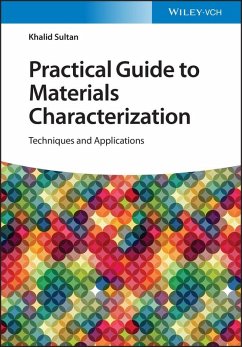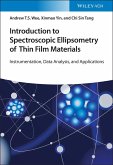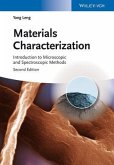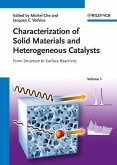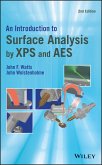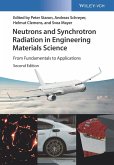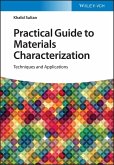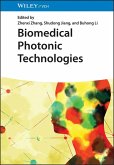Practical Guide to Materials Characterization
Practice-oriented resource providing a hands-on overview of the most relevant materials characterization techniques in chemistry, physics, engineering, and more
Practical Guide to Materials Characterization focuses on the most widely used experimental approaches for structural, morphological, and spectroscopic characterization of materials, providing background, insights on the correct usage of the respective techniques, and the interpretation of the results. With a focus on practical applications, the work illustrates what to use and when, including real-life examples showing which characterization techniques are best suited for particular purposes. Furthermore, the work covers the practical elements of the analytical techniques used to characterize a wide range of functional materials (both in bulk as well as thin film form) in a simple but thorough manner.
To aid in reader comprehension, Practical Guide to Materials Characterization is divided into eight distinct chapters. To set the stage, the first chapter of the book reviews the fundamentals of materials characterization that are necessary to understand and use the methods presented in the ensuing chapters. Among the techniques covered are X-ray diffraction, Raman spectroscopy, X-ray spectroscopy, electron microscopies, magnetic measurement techniques, infrared spectroscopy, and dielectric measurements.
Specific sample topics covered in the remaining seven chapters include:
With comprehensive and in-depth coverage of the subject, Practical Guide to Materials Characterization is a key resource for practicing professionals who wish to better understand key concepts in the field and seamlessly harness them in a myriad of applications across many different industries.
Practice-oriented resource providing a hands-on overview of the most relevant materials characterization techniques in chemistry, physics, engineering, and more
Practical Guide to Materials Characterization focuses on the most widely used experimental approaches for structural, morphological, and spectroscopic characterization of materials, providing background, insights on the correct usage of the respective techniques, and the interpretation of the results. With a focus on practical applications, the work illustrates what to use and when, including real-life examples showing which characterization techniques are best suited for particular purposes. Furthermore, the work covers the practical elements of the analytical techniques used to characterize a wide range of functional materials (both in bulk as well as thin film form) in a simple but thorough manner.
To aid in reader comprehension, Practical Guide to Materials Characterization is divided into eight distinct chapters. To set the stage, the first chapter of the book reviews the fundamentals of materials characterization that are necessary to understand and use the methods presented in the ensuing chapters. Among the techniques covered are X-ray diffraction, Raman spectroscopy, X-ray spectroscopy, electron microscopies, magnetic measurement techniques, infrared spectroscopy, and dielectric measurements.
Specific sample topics covered in the remaining seven chapters include:
- Bragg's Law, the Von Laue Treatment, Laue's Equation, the Rotating Crystal Method, the Powder Method, orientation of single crystals, and structure of polycrystalline aggregates
- Classical theory of Raman scattering, quantum theory of Raman spectroscopy, high-pressure Raman spectroscopy, and surface enhanced Raman spectroscopy
- Basic principles of XAS, energy referencing, XPS spectra and its features, Auger Electron Spectroscopy (AES), and interaction of electrons with matter
- Magnetization measuring instruments, the SQUID magnetometer, and the advantages and disadvantages of vibrating sample magnetometer (VSM)
With comprehensive and in-depth coverage of the subject, Practical Guide to Materials Characterization is a key resource for practicing professionals who wish to better understand key concepts in the field and seamlessly harness them in a myriad of applications across many different industries.
Dieser Download kann aus rechtlichen Gründen nur mit Rechnungsadresse in D ausgeliefert werden.

